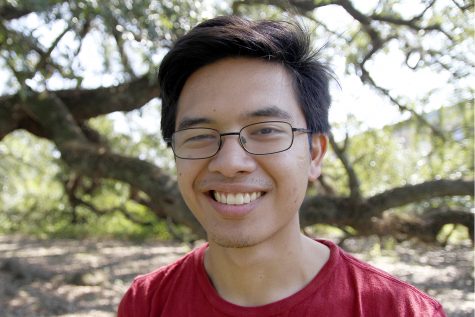
As I walked back to my dorm Tuesday night, head bowed to the chill wind, and checked my phone, I saw the news alert.
It’s just another death, something happening constantly, right? Whenever people would talk about famous names losing their mortal existence, their reactions to it always seemed strange. It was neither surprising nor incomprehensible, but weird that they would care. Death happens, and you never really knew this person. I observed the same patterned, almost scripted, public reaction to the death of theoretical physicist Dr. Stephen Hawking.
He is the symbol and evidence that if curiosity does kill the cat, satisfaction leaves us more knowledgeable and prepared than before. He explored and cleared the path through the unknown from a wheelchair. He told us “Without imperfection, neither you nor I would exist,” that “Life would be tragic if it weren’t funny,” and the danger of the illusion of knowledge over ignorance. He survived amyotrophic lateral sclerosis by about 50 years more than the average life expectancy.
We know all of that already. Whatever else he may have been, Hawking was not an obscure figure. He is not the only scientist to have died recently. Mathematician Maryam Mirzakhani, Nobel Prize winner George Olah, physicist and “godfather of energy efficiency” Arthur Rosenfeld and astronomer Vera Rubin all died in recent years, but none quite took the spotlight like Hawking did. Hawking is a well-known name. He appeared in the American sitcom “The Big Bang Theory.” The film “The Theory of Everything” on his life earned Outstanding British Film and Best Adapted Screenplay in the British Academy Film Awards as well as being nominated in several other categories in different award shows. When people think of science, they often think of Hawking. He doesn’t need another obituary lauding his accomplishments. After all, he is dead.
But what about us, the aspiring scientists, scholars and recreational would-be philosophers? What do we need when the man who may have encouraged us to go into the often merciless, crushing discipline of science? What kind of man inspires us to happily enter such madness? As many people as may attribute their interest and dedication to science at least in part to Hawking, he had a greater impact on the discipline than his research alone. While I cannot truthfully say he influenced me to study chemistry, I understand the idea of finding inspiration in a person. One option is to continue what we’re doing, to honor him as a scientist the best way we know how, by showing we learned something from him. Propagate the inspiration so more young people decide to delve into science.
So, go ahead and share your favorite Stephen Hawking quote on social media. Share that post about how Hawking was born on the 300-year anniversary of Galileo Galilei’s death day and died on the 139-year anniversary of Albert Einstein’s birth. Ponder the progress of theoretical physics and cosmology in his absence. Then, go out and find the answers to your questions. Accept the challenge to find the reality behind the mythology and suspicion. Explore with your mind. Be curious. Be brave and determined to chase that curiosity. Be clever enough to actually do that efficiently and correctly. Go out into the world, nerds, and figure out the truth with the tenacity we learned from Hawking, the physicist whose mind wandered with the stars.


